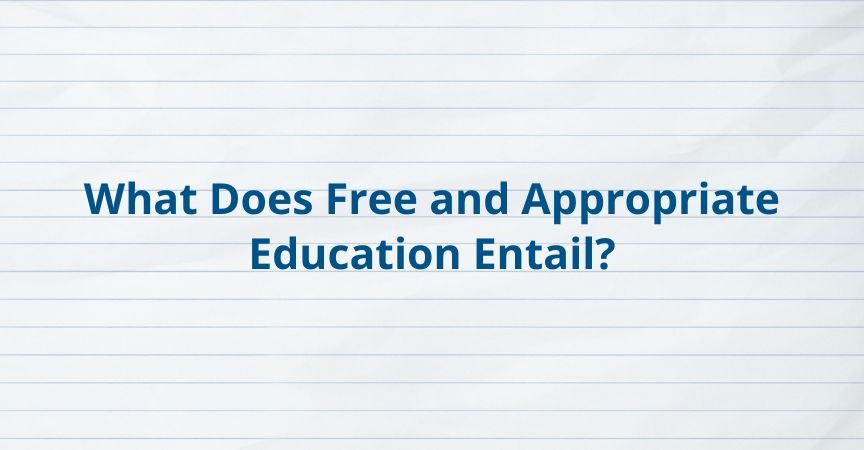Special education remains one area that is shrouded in legal complexities, leaving many parents feeling exasperated by the state education system. But what can parents do when the public school system does not address the needs of their child or fails to provide required services and accommodations? Jennifer Chang, education rights attorney, discusses this topic with Kristen Howe on Absolute Trust Talk: Free and Appropriate Public Education: How Do I Get One for My Special Needs Child?
Over the last decade, the work of Jennifer Chang has helped provide students with disabilities the same educational opportunities and chances given to other students in the same system. Not only does she help families correct injustices in schools, but also educates families on how to advocate for their children. When a district’s promise and delivery don’t match the needs of students, that’s when families turn to attorneys like Jennifer.
“Every child is different and has individualized needs that must be met by the public school system. Planning and advocacy are required by parents in order for children to fully benefit from the special education programs available to students who qualify. It is my mission to support as many families as possible as they navigate the process and help set their child up for success.”
-Jennifer Chang, Education Rights Attorney
Jennifer works significantly with children with autism – ranging from high to low functioning, dyslexia, and any other disability that prevents a child from maximally participating in their education. In her interview, she shares that children so often fall through the cracks because they are able to somewhat engage in the classroom but as children progress into higher grade levels, education discrepancies become more apparent.
Typically, parents will seek help from an education rights attorney under two circumstances: either their child’s school decided the child is not eligible for services and they are looking for guidance in bringing an independent assessment to the district, or the child’s family is in disagreement with the school district about services and accommodations the school is providing or is willing to offer the child. Jennifer’s interview provides a breakdown of some commonly used terminology in schools that parents should be aware of:
IEP – When the district assesses a child and finds them eligible for special education services, the child receives an Individualized Education Plan which is a contract between the parents and the school district that outlines how the child will be educated. The services, accommodations, and specific goals must all be listed in this document or the district is not considered responsible. Parents must provide consent on the IEP, and this is where advocacy is key. Like any contract, the IEP contains waiver language that can potentially absolve the district in certain situations. Jennifer stresses the importance of consulting with a special education attorney before signing school documents.
504 Plan – Less complex than an IEP, the 504 Plan protects a student by offering accommodations that are typically based on medical needs such as asthma, diabetes, or life-threatening allergies. No assessment is required for a 504, bother other required documentation may be a doctor’s note.
Least Restrictive Environment – Every child has the right to be educated in a general education classroom with appropriate support. Depending on individual needs, a child might be pulled into a small-group or individual setting for specific accommodations and services such as speech and language or additional math or reading support, but the school district should provide the student with learning in the least restrictive placement possible.
Compensatory Education – If a school fails to provide adequate services as required by the IEP, parents can allege contract violations for up to two years of education. Parents must be able to prove through documentation that the child did not receive accommodations or services. If needed, these matters may proceed to a due process hearing with the court in order to reach a resolution. The court understands educational needs are time-sensitive and most cases are resolved within 6 months to a year.
In the years following the Covid-19 pandemic, schools have been short-staffed resulting in administrations compensating for services by grouping students or providing inadequate services amid a high turnover of substitutes. During this time, it is essential for parents to stay engaged with their child’s learning and identify and track any changes in their educational progress and completion of goals.
Consulting with an experienced education rights attorney before reaching an impasse with the school district is crucial. This will be the best way to identify all available options before entering into a discussion at an IEP meeting and avoid accidentally waiving future rights by signing a settlement agreement. It is important for parents to be proactive in their child’s education and to trust their instincts when it comes to their child.
Jennifer only scratches the surface of the complexities of the special education system in her informational interview with Absolute Trust Talk. If your child is eligible to receive special education, is not receiving the appropriate services or accommodations, or is being denied services, contact the offices of Jennifer Chang today.
